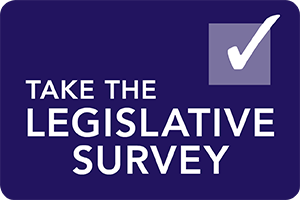
Representative Lisa Subeck Joins Governor Tony Evers to Introduce the Less for Rx Act
WAUSAU - Today, Representative Lisa Subeck (D-Madison) joined Governor Tony Evers in Wausau to announce a series of 13 bills targeting the high cost of prescription drugs. The Less for Rx Act was developed from recommendations of the bi-partisan Governor’s Task Force on Reducing Prescription Drug Prices.
The task force was charged with collecting and analyzing data on the development, pricing, distribution, and purchasing of prescription drugs. It investigated steps other states have taken to make prescriptions more affordable and sought out opportunities to work with those states and the federal government. Task force membership included a diverse group of stakeholders, including pharmaceutical manufacturers, insurers, pharmacy benefit managers, health care providers, advocates, and retailers, in addition to legislators from both parties. The task force looked at the prescription drug supply chain and its many stakeholders, and it gathered testimony from consumers, businesses, and health care providers to better understand how the high cost of prescription drugs impacts each of them.
“Serving on the Governor’s Task Force on Reducing Prescription Drug Prices, I heard from people across the state who struggle to pay for their medications,” said State Rep. Subeck. “All Wisconsinites need and deserve access to affordable healthcare, including prescription drugs, and the Less for Rx Act could provide some much-needed relief to patients struggling to afford potentially lifesaving medications they or their children need.”
The high cost of prescription drugs poses a substantial financial burden for Wisconsin families. According to a Kaiser Family Foundation poll, 1 in 4 Americans who take prescription drugs report difficulty affording their medications, and in Wisconsin, prescription drugs were estimated to cost residents more than $1.3 billion in 2019.
“No one should be forced to choose between paying household expenses like food, housing costs, and utilities, or purchasing their medications. And no one should have to put their health or life at risk by rationing their medications, but this is exactly what too many patients have to do,” said Rep. Subeck. “The Less for Rx Act addresses this problem by reducing and controlling drug costs, increasing transparency for consumers, and ensuring access to affordable prescription medication.”
The full Less for Rx Act includes the following proposed bills:
LRB 2313 – Creates a prescription drug affordability board (Subeck/Smith)
LRB 3315 – Creates a grant program for free and charitable clinics (Subeck/Johnson)
LRB 3317 – Creates a prescription drug repository program (Subeck/Taylor)
LRB 3319 – Allows for pharmacist continuing education at free and charitable clinics (Subeck/Johnson)
LRB 3331 – Create a generic drug importation program (Subeck/Roys)
LRB 3332 – Relates to a pharmacy benefits tool grant program (Subeck/Erpenbach)
LRB 3333 – Establishes an insulin copayment cap (Anderson/Ringhand)
LRB 3334 – Establishes drug reimbursement for certain entities under the federal 340B drug discount program (Subeck/Carpenter)
LRB 3335 – Creates a value-based diabetes medication pilot program (Subeck/Erpenbach)
LRB 3336 – Creates a fiduciary duty and disclosure requirement for pharmacy benefit managers (Subeck/Erpenbach)
LRB 3337 – Establishes licensure of pharmacy services administrative organizations (Subeck/Carpenter)
LRB 3338 – Establishes licensure of pharmaceutical representatives (Subeck/Erpenbach)
LRB 3339 – Creates an Office of Prescription Drug Affordability (Subeck/Pfaff)



